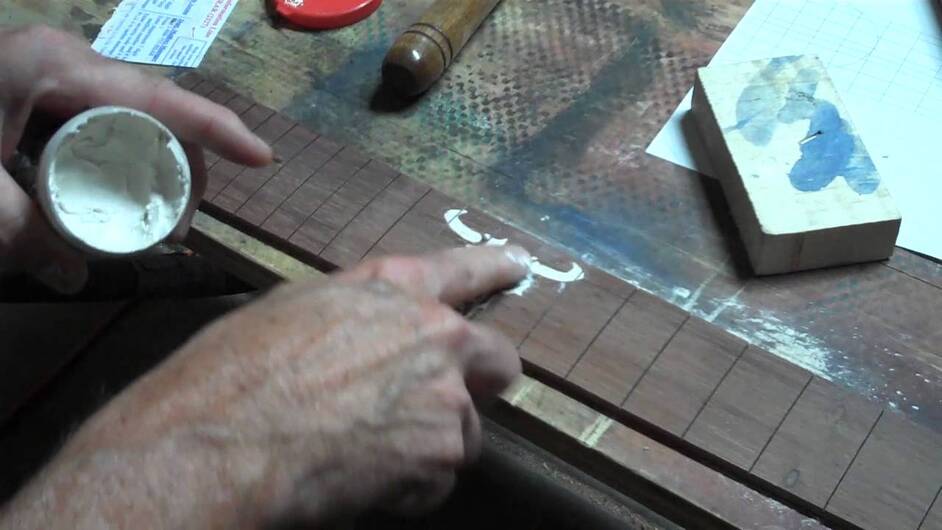I’ve been looking at inlay ideas, using metal powders with epoxy, etc. and I ran across this youtube video which shows filling engraved areas with Timber Mate wood filler. This looks very simple & easy compared to mixing epoxy.
Looks like it will definitely be worth an experiment or two. thanx.
What a fantastic idea, to use thin CA to set the filler! I can see using this a lot! 
Hey, thanks for this idea! I’m getting so anxious to try all these cool ideas I’m seeing I can hardly contain myself. 
me too - I’m actually thinking I might play around with inlay techniques which use epoxy, ca, etc. with scrap wood and my dremel so that when my GF arrives, I’ll have some practice. There are a lot of tutorials out there, with different advice. Some say it is really important to seal the engraved areas before applying epoxy/ca because that stuff will leech into the wood, causing the area around the engraving to respond in a different way to finishes like oils or stains than the rest of the wood. So, I want to see for myself what will work best.
Using the GF  to create the engrave components in steps, then doing the wood filler (colored to different choices) and CA on each step would make some very impressive inlays.
to create the engrave components in steps, then doing the wood filler (colored to different choices) and CA on each step would make some very impressive inlays.
Since the GF  can do the engraves separately, you could pickup each step after completing the previous fills and thus do some very unique and exquisite wood projects.
can do the engraves separately, you could pickup each step after completing the previous fills and thus do some very unique and exquisite wood projects.
Oooohhh, the gears are a turning.
I really like this idea. When the camera alignment on the GF is fine tuned, then It would be cool to run an etch in phases, filling in different sections with differently colored filler. You could make an opaque stain glass window type of effect.
Anybody know if there is anything in TimberMate that would harm the laser in the event that it accidentally (or otherwise) is zapped?
brilliant! ![]()
Haha. Looks like we were thinking the same thing, but you beat me to it!
Really interesting idea–the addition of the CA glue is definitely what makes it practical. I’m looking forward to trying this!
What is CA glue exactly?
CyanoAcrylate. (Otherwise known as SuperGlue.)
Thanks @Jules I was wondering the same thing. Excited to try doing wood inlay.
CA is Cyanoacrylate. It’s a super strong king of adhesive that cures very quickly compared to most. Most people know Super Glue, but there are a bunch of other formulas of it with different uses (medical adhesives, underwater gel formulas, all sorts of fun stuff.)
Whoops! Put the wrong link in there…that one is for gap filling…
As i was saying before I deleted the post…don’t use the little tubes - they’re too wasteful. This stuff is thin enough to flow down into the woodfill and bond it:
Also, if you don’t use a lot of CA glue you can extend its shelf life by keeping it in the refrigerator. It is also something to be careful with, as some people can develop a sensitivity to it which is no fun at all.
Also is very important to keep the nozzle clean of glue, or the next time you need it…
Does the CA need to be brought to room temperature to set properly or have you noticed no difference when using it directly from the fridge?
Agreed!
Yes, probably for the best  Also, make sure the bottle is free of condensation, as moisture will act as a catalyst and speed up the set time.
Also, make sure the bottle is free of condensation, as moisture will act as a catalyst and speed up the set time.
